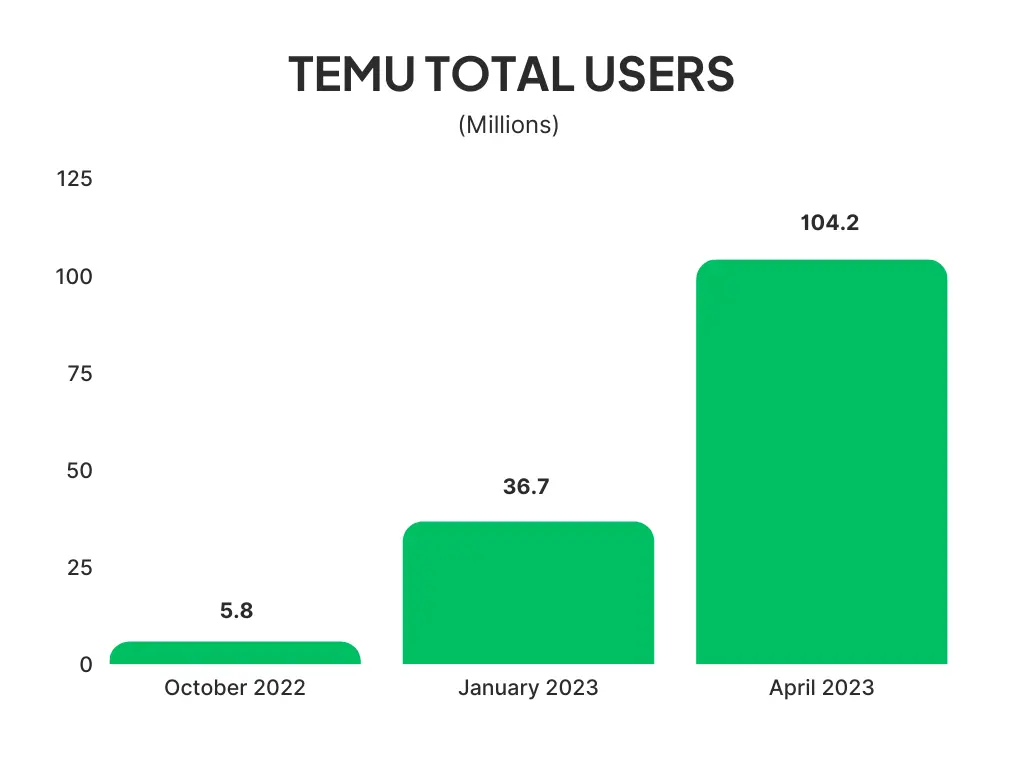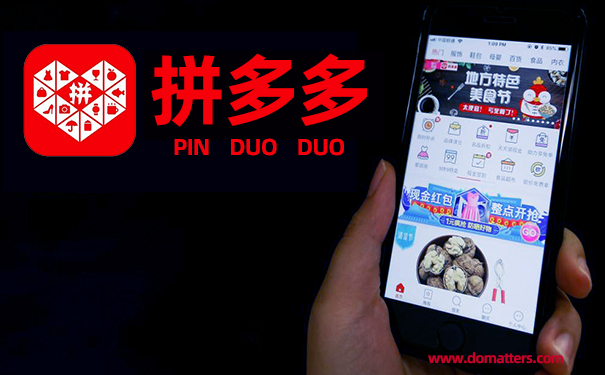Who doesn’t want to shop like a billionaire? 🤑
The massive online marketplace TEMU claims to give you just the opportunity! The new retail sensation has won the hearts of consumers worldwide with its ridiculously low prices and huge range of products. No matter where you like to browse online, you can count on seeing a TEMU ad. And if you haven’t yet, I’m a bit jealous …
Only launched in 2022, TEMU has become one of the most successful online shopping platforms ever, standing next to well-knowns sites like Amazon, Wish and SHEIN.

When a giant like TEMU pops up seemingly out of nowhere, it makes you wonder – how did they do it, and were they playing fair?
One of the biggest draws to TEMU is certainly its low prices.

How can any company afford offering such deals to their customers?
Well, time to reveal the magic behind TEMU: it connects buyers directly with Chinese manufacturers, effectively removing the middlemen and keeping costs down.
But it’s not just the prices that drive their success – their marketing strategy is unlike anything I’ve ever witnessed.
TEMU’s first big exposure happened back in 2023, when the platform played its ad during the Super Bowl. They continued their advertising momentum with another significant campaign for the Super Bowl this year (February 2024), reportedly spending $21 million on the 2024 ads alone!!
Other than investing in huge brand ads, TEMU’s marketing heavily relies on celebrity endorsements, including posts from A-listers like Jason Derulo. By teaming up with famous faces, they’re not just looking for brand recognition, but also aim towards boosting their credibility.

Additionally, the platform sponsors smaller influencers through sending them curated products for free (read more here). The goal is to create a misleading impression that TEMU offers products worth purchasing while appearing credible to the influencers’ audience.

TEMU has also seemingly flooded social media platforms with their (often hideous) advertisements. Their aggressive marketing strategy aims for the shock factor.
Personally, I’ve encountered numerous TEMU ads while scrolling through Instagram, leaving me so stunned, that I felt the need to share screenshots of them with friends. Despite the unconventional and sometimes unattractive look of the items, TEMU does one thing right – provokes people to talk about it.

Okay, they got our attention. Now what?
To maintain customer engagement, TEMU has gamified the shopping experience. Users can participate in mobile games similar to Farmville or Candy Crush, earning free items along the way. However, the closer players get to their rewards, the more challenging the tasks become, encouraging frequent visits to the app and increasing the likelihood of impulse purchases.

Additionally, the games offer users small bursts of dopamine, boosting engagement for TEMU. I couldn’t shake the feeling of gambling being a part of the experience, however, it turns out that TEMU’s offerings typically operate in a legal gray area since they don’t involve real monetary wagers. Players can earn virtual currency or discounts, but these rewards aren’t convertible to cash, keeping everything in the safe zone.

But if TEMU has figured out the perfect money-making capitalist scheme, there is one question left – how has nobody ever thought of that before?
Well, they have. Just not in the Western Communities.
It turns out that TEMU isn’t an independent company that appeared out of nowhere. It is actually a sister company to the popular Chinese app Pin Duo Duo, both owned by the same parent company, PDD Holdings. Pin Duo Duo has been linked to several contraversies. For one, the company’s focus on cutting production costs led to severely overcrowded workspaces, with reports of as few as eight-bathroom stalls for over 1,000 workers on a single floor. Employees are also subjected to China’s “996” work culture—working from 9 a.m. to 9 p.m., six days a week. As a result, PDD has been criticized for exploiting its workers in inhumane conditions, which has even led to death from exhaustion. Beyond concerns over worker treatment, Pinduoduo has also faced scrutiny regarding its data privacy practices (read more here). Despite these issues, the company’s continued success highlights how easily such practices can persist.

Turning back to TEMU, while it hasn’t yet faced as much controversy as Pin Duo Duo, the similarities between the sister companies raise concerns. For example, customers of TEMU have complained about receiving excessive spam emails after signing up, raising questions about data-sharing practices, yet that stays a speculation.
Additionally, the work environment provided by TEMU has been put into question. US lawmakers are concerned with the “extremely high risk” of products being sold on TEMU having been made with forced labour.
“Temu does not have any system to ensure compliance with the Uyghur Forced Labor Prevention Act (UFLPA). This all but guarantees that shipments from Temu containing products made with forced labor are entering the United States on a regular basis” the House Select Committee on the Chinese Community Party said in its report.
Beyond questionable product quality, work and advertising ethic, its important to mention that TEMU’s business model has a broad, troubling impact on consumer habits and the environment. By flooding the market with cheap, disposable goods, TEMU promotes overconsumption, encouraging customers to buy items they don’t need simply because they’re inexpensive.
As tempting as it might be to indulge in these ultra-low prices, the true cost of shopping on platforms like TEMU extends far beyond our wallet. I will wrap it up by saying that it’s all about quality over quantity – sometimes, less is truly more! <3


I really liked how much you incorporated pictures and quotes to break up the text, it made it really enjoyable to read! I think another problem with TEMU is that one of their main demographics seem to be younger teenagers. One of my coworkers (16) frequently comes in talking about her newest buy, while the coworkers around my age (20+) all share a look since we know most products from there aren’t great quality, as you mentioned in your post. It probably appeals to this age group since they work less hours for less pay, if at all. So they can buy a lot more products with the money they have. This probably probably also ties in with the type of influencer they choose to collaborate with (about that, the screenshot you included of Morgan Leah’s TEMU playlist is crazy, how many hauls can one person have of any brand?? Really illustrates your overconsumption point).
As someone who comes from mainland China, I was surprised by how expensive things can be. If you think Temu is cheap in the western world, then PDD is the Temu in China — it is incredibly cheap. PDD, the company, is notorious for selling cheap and low quality products; PDD is also famous for giving away money through a complex procedure — you need to keep inviting new users to be part of this samaritan-like event. According to me and many netizens in China, this is no different than harassment.